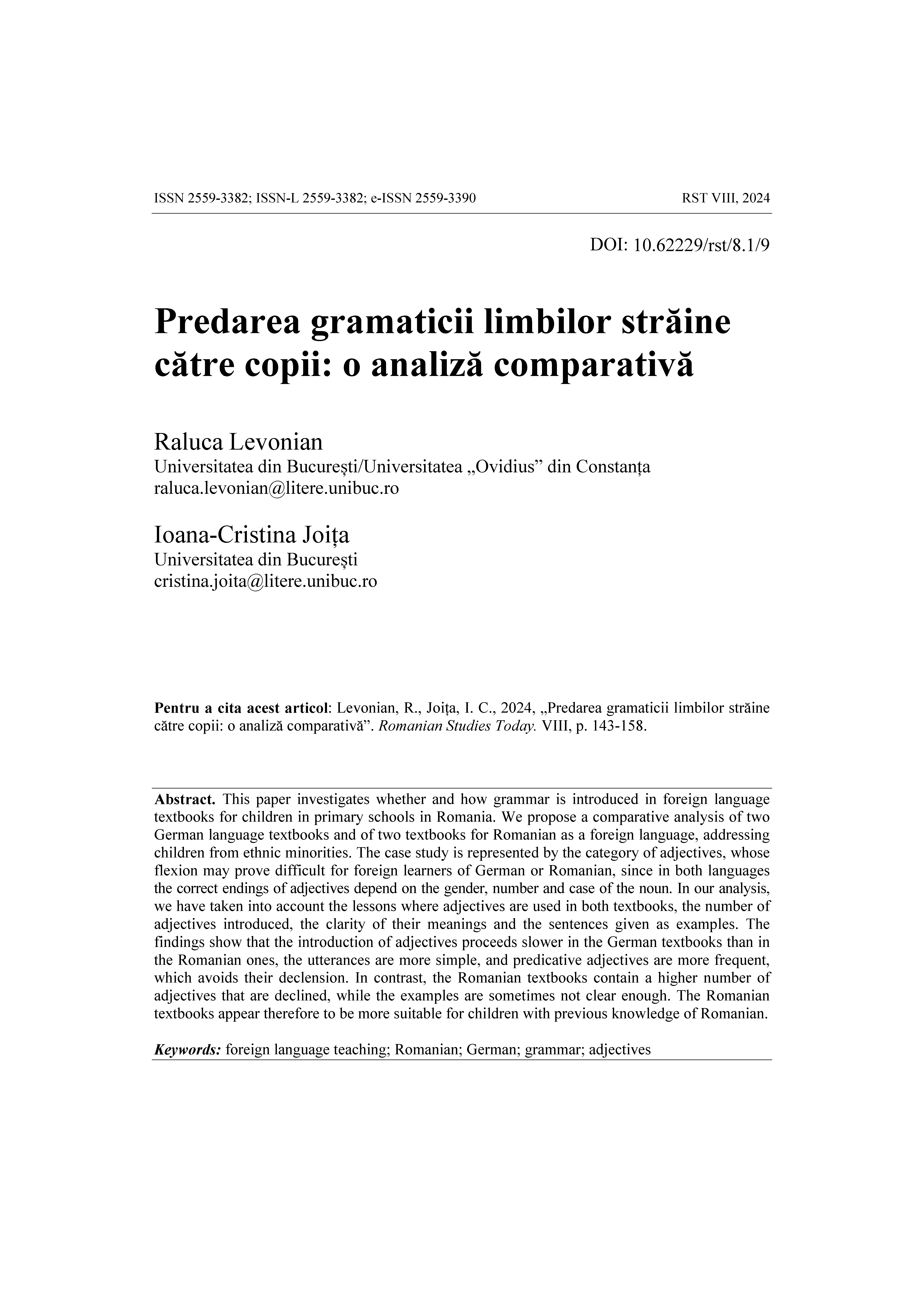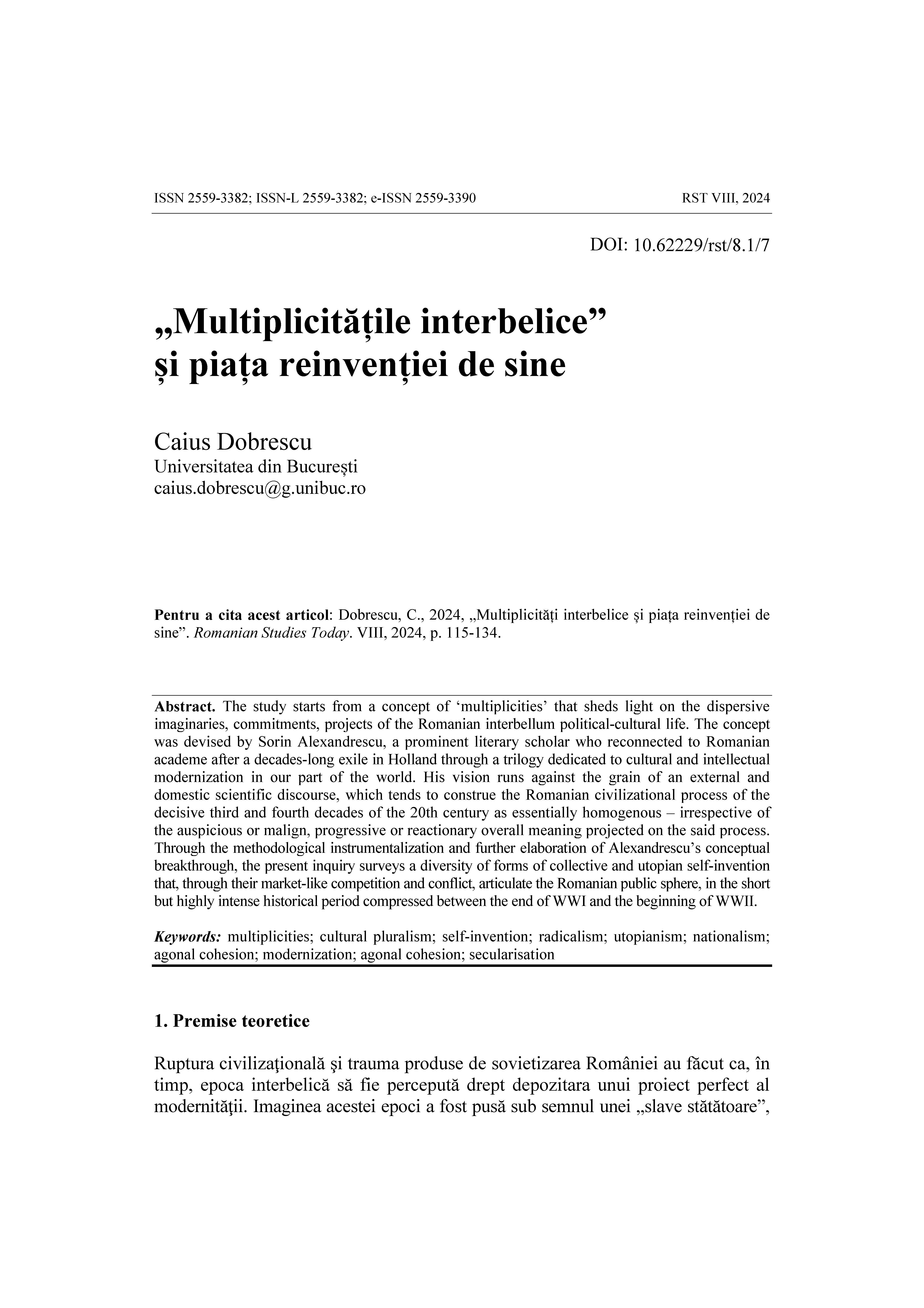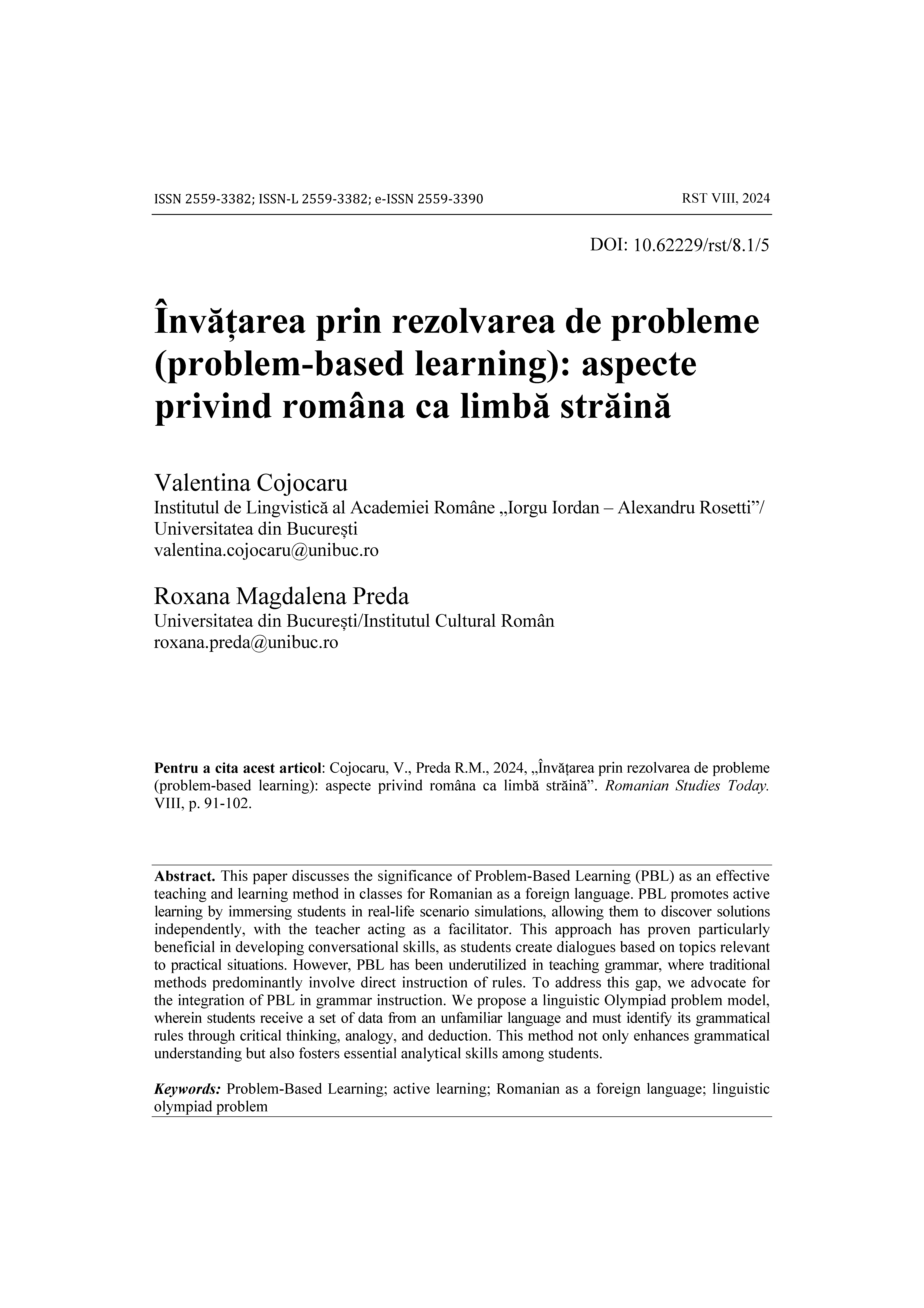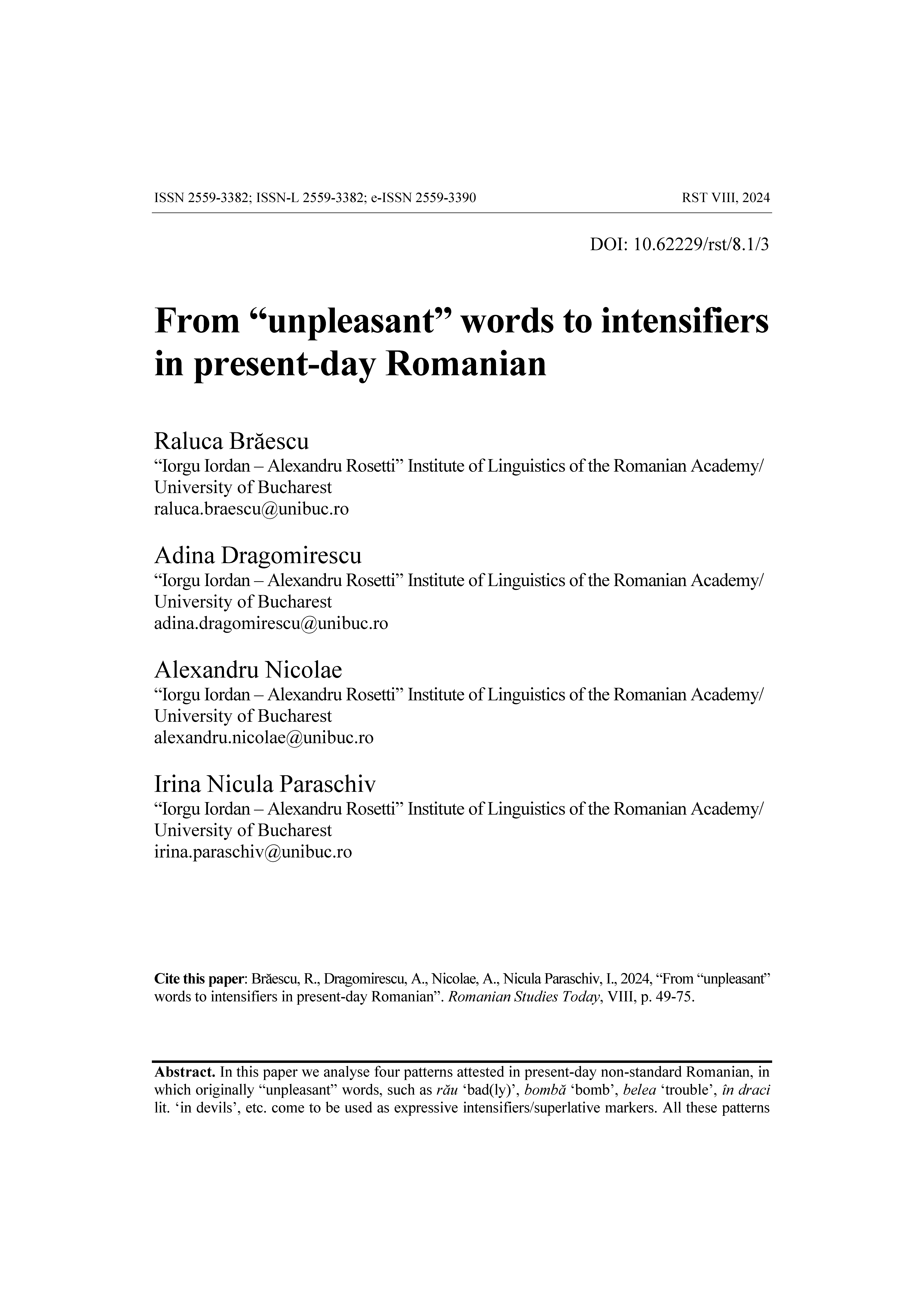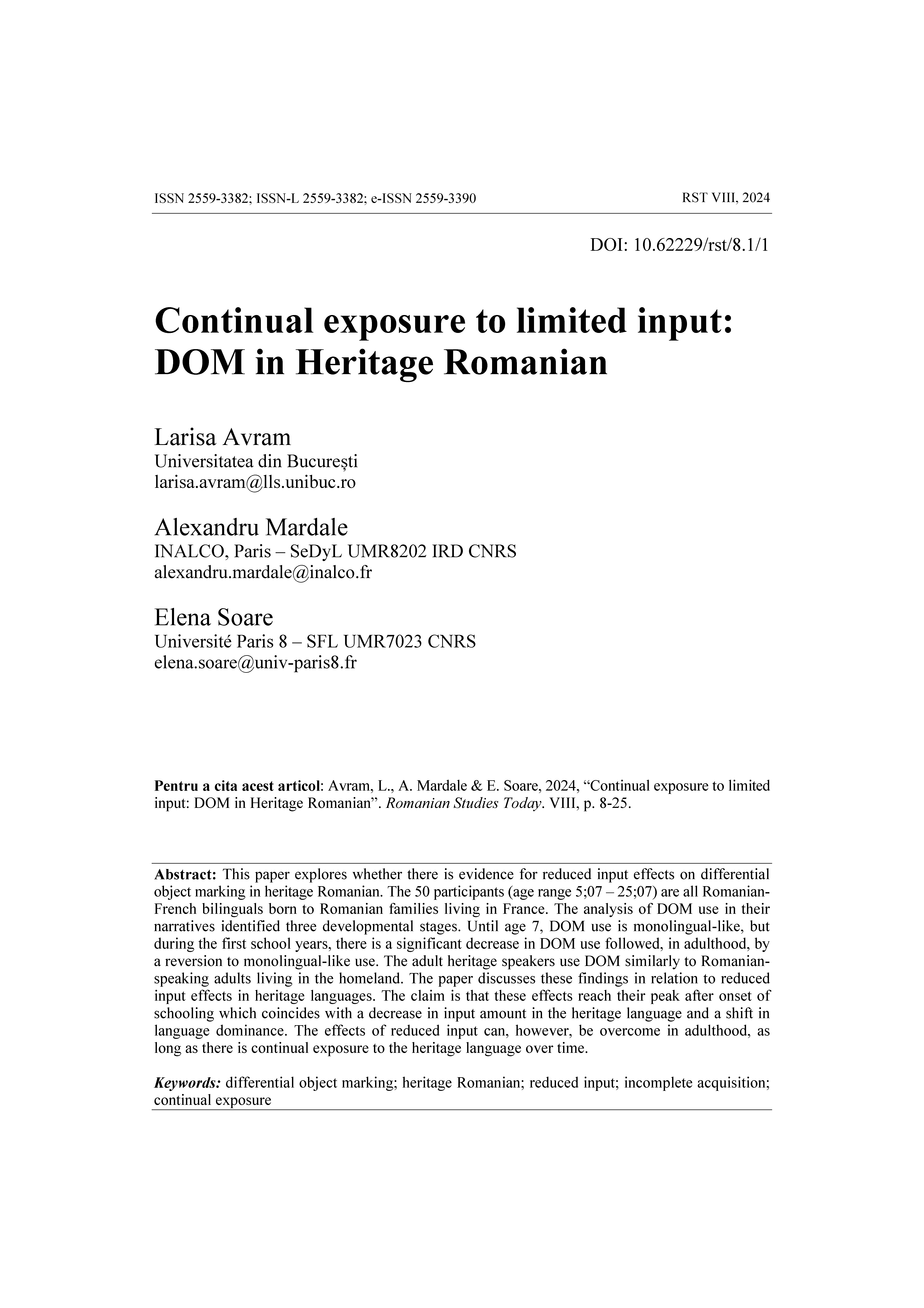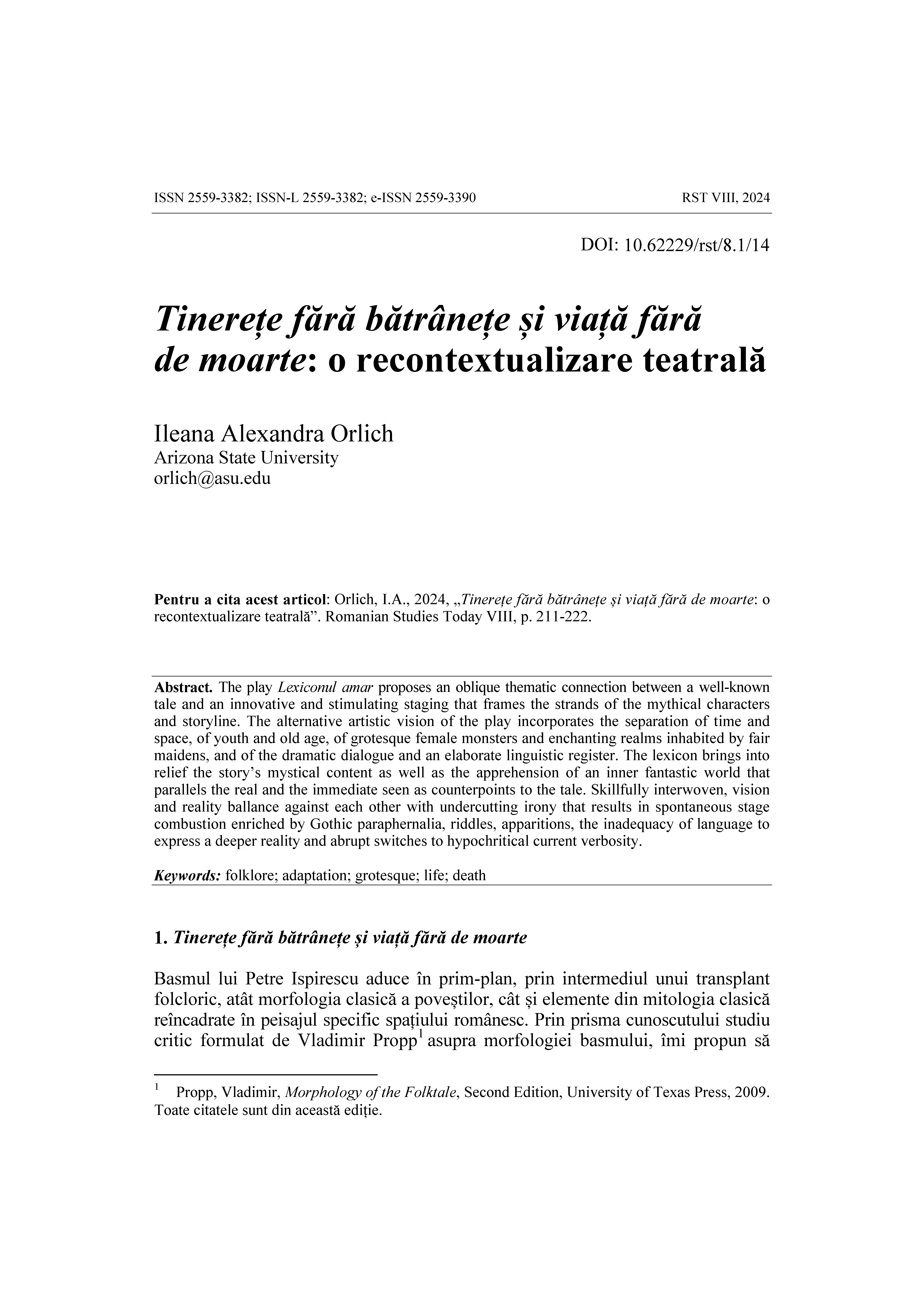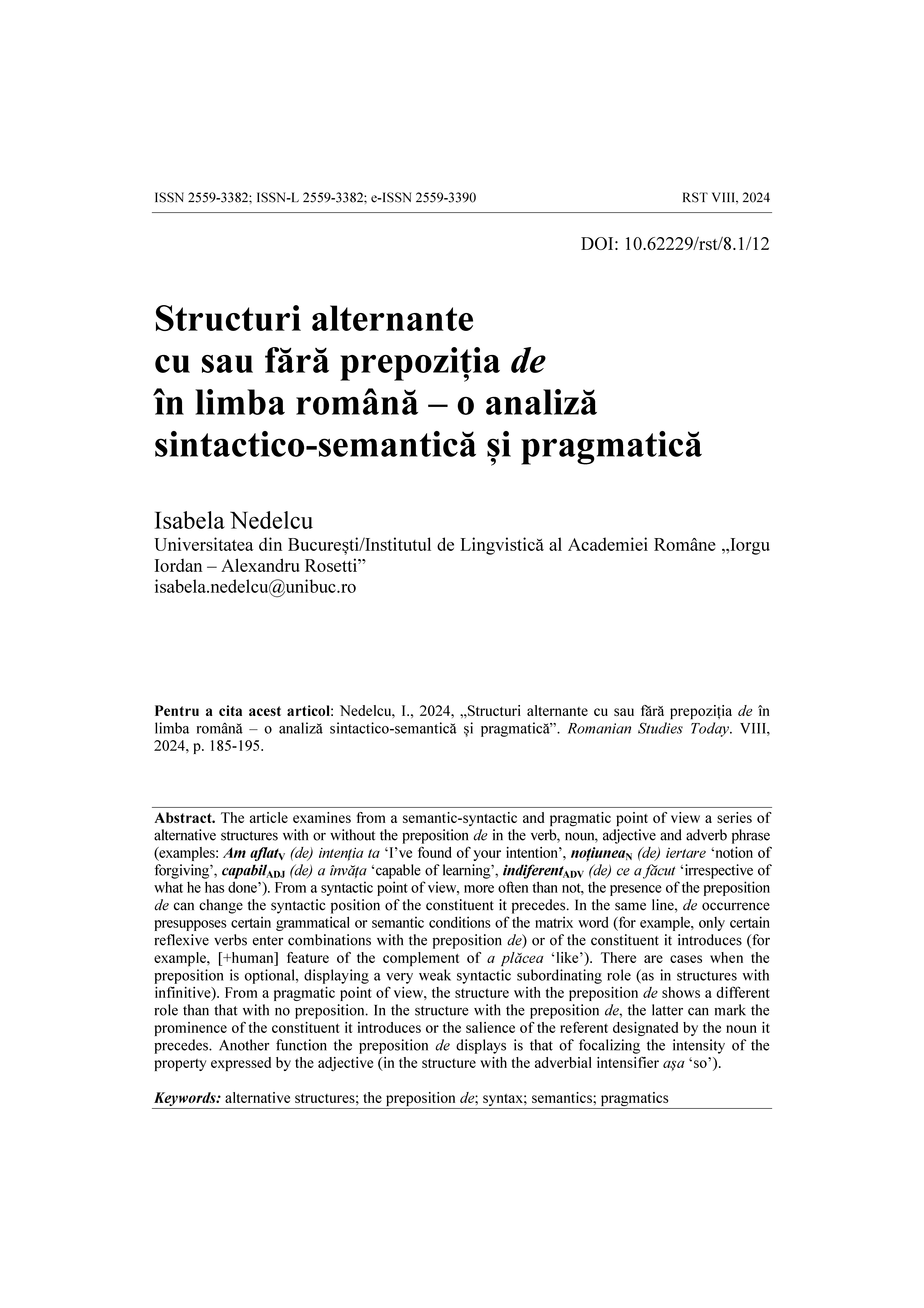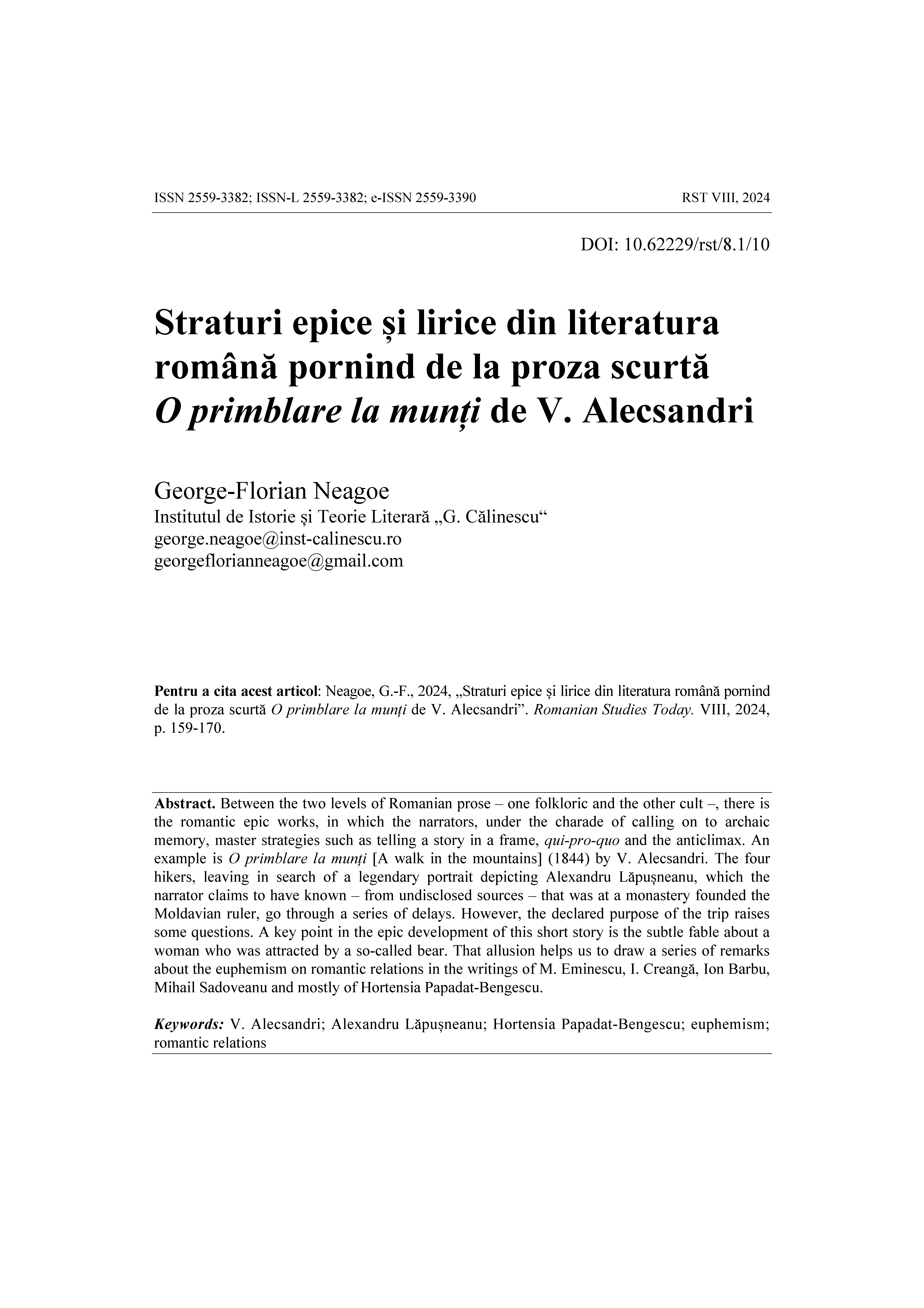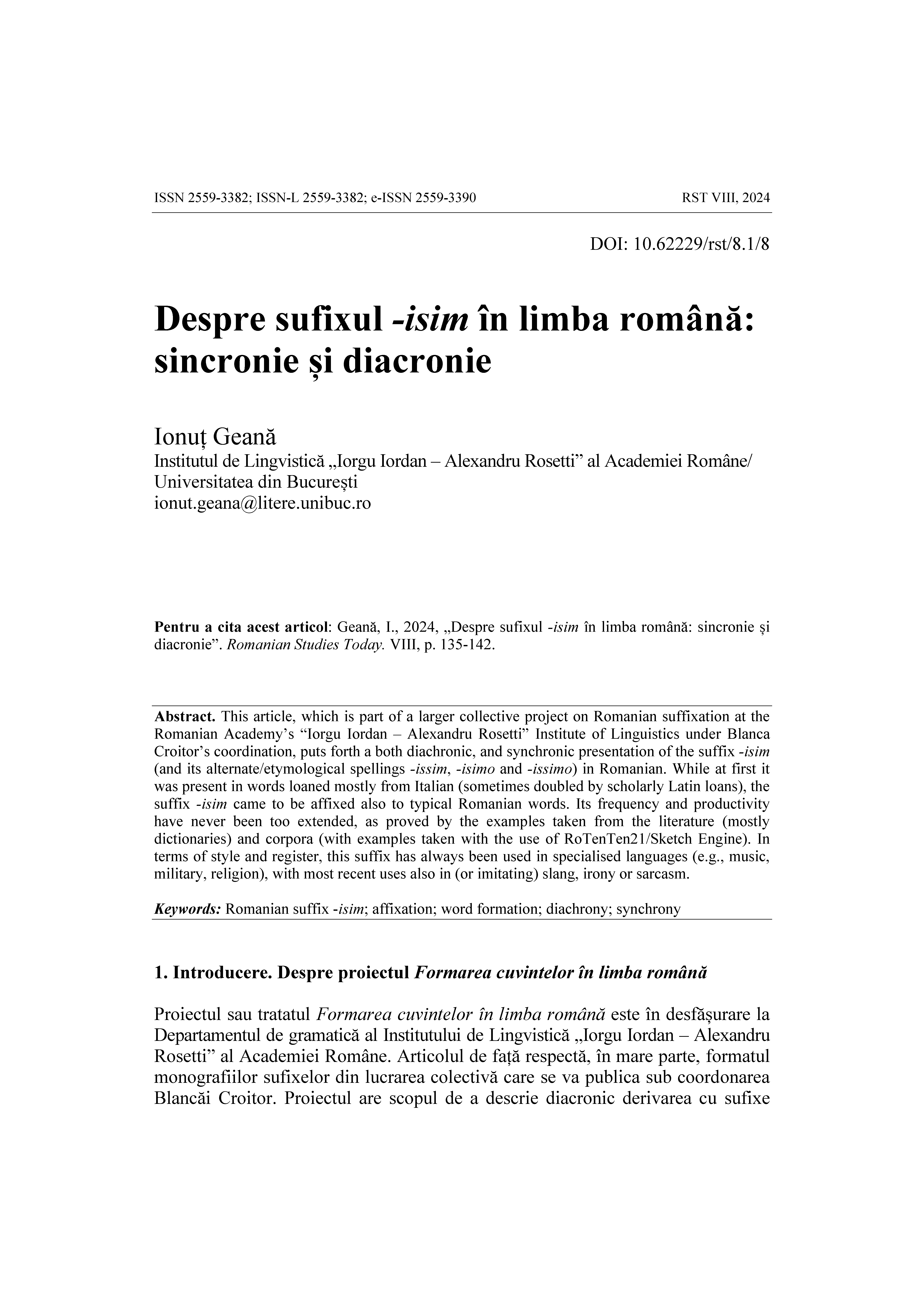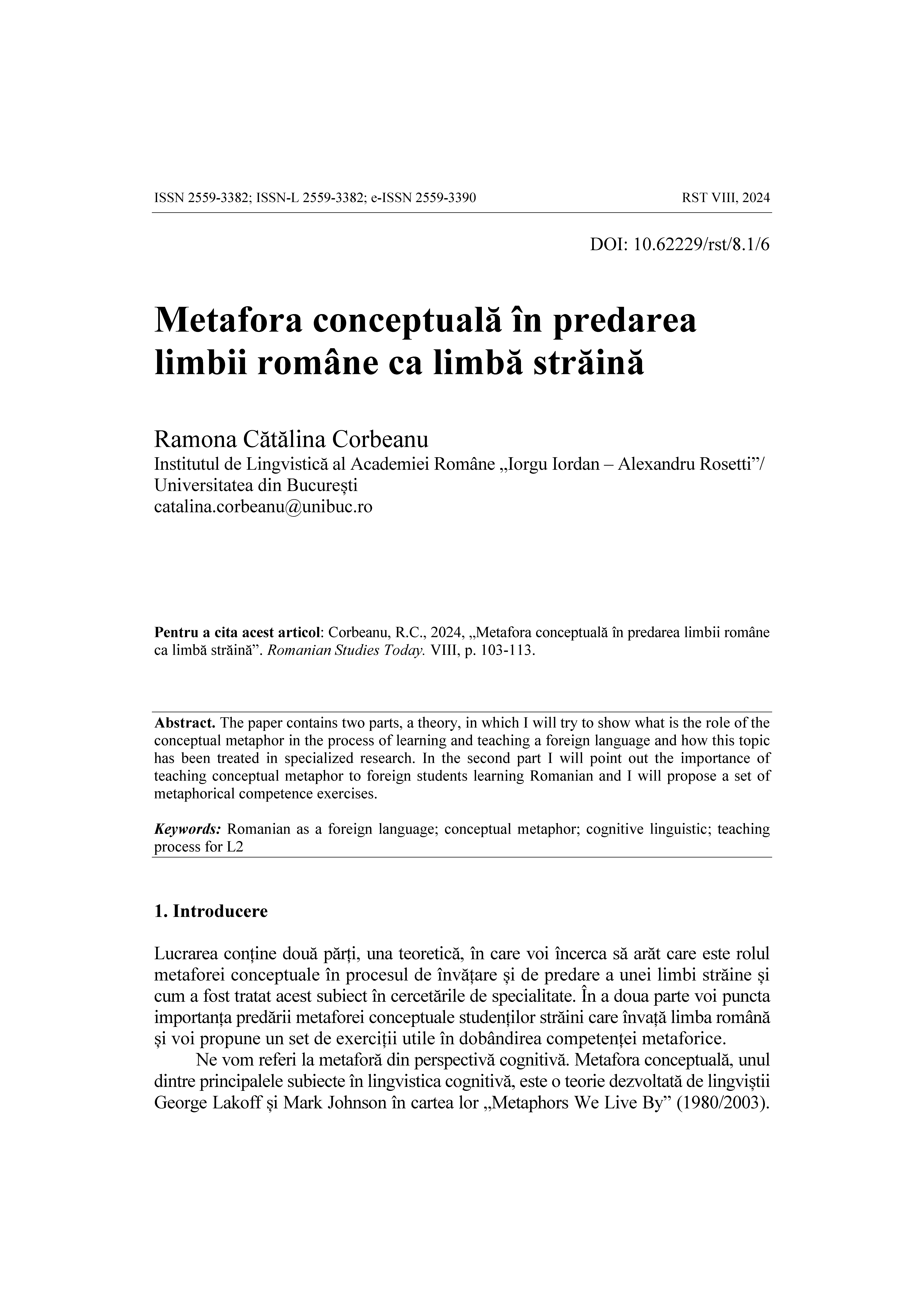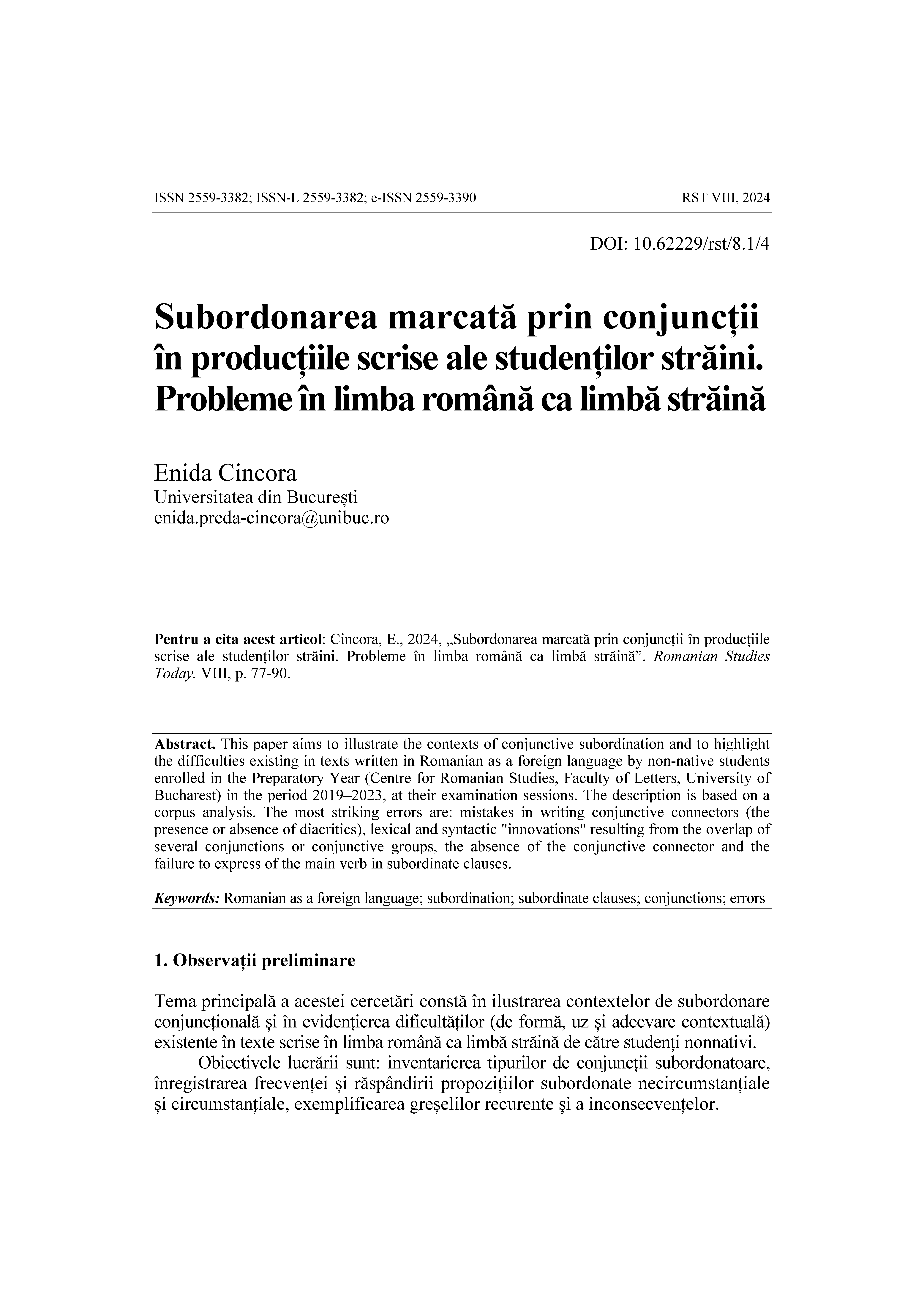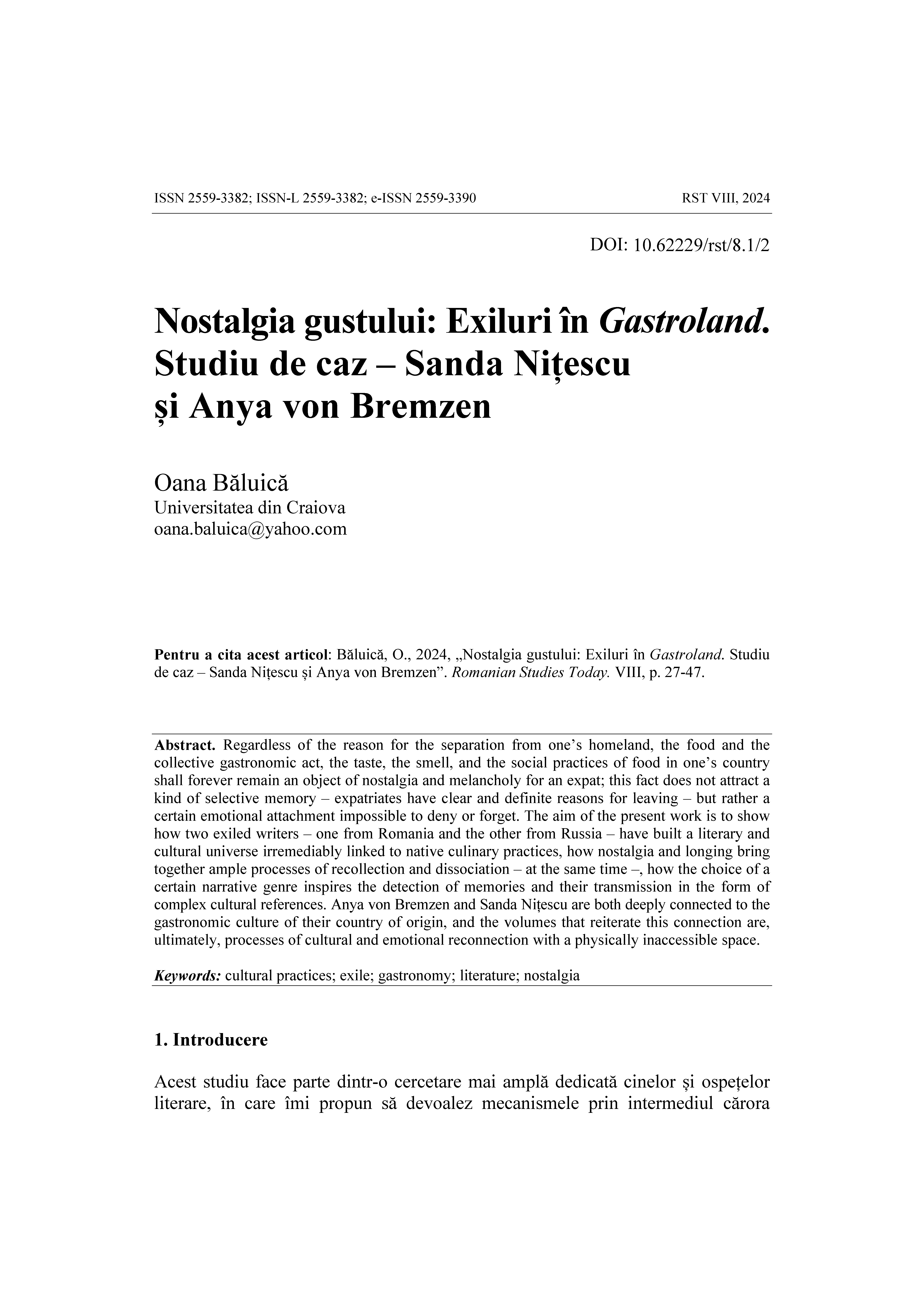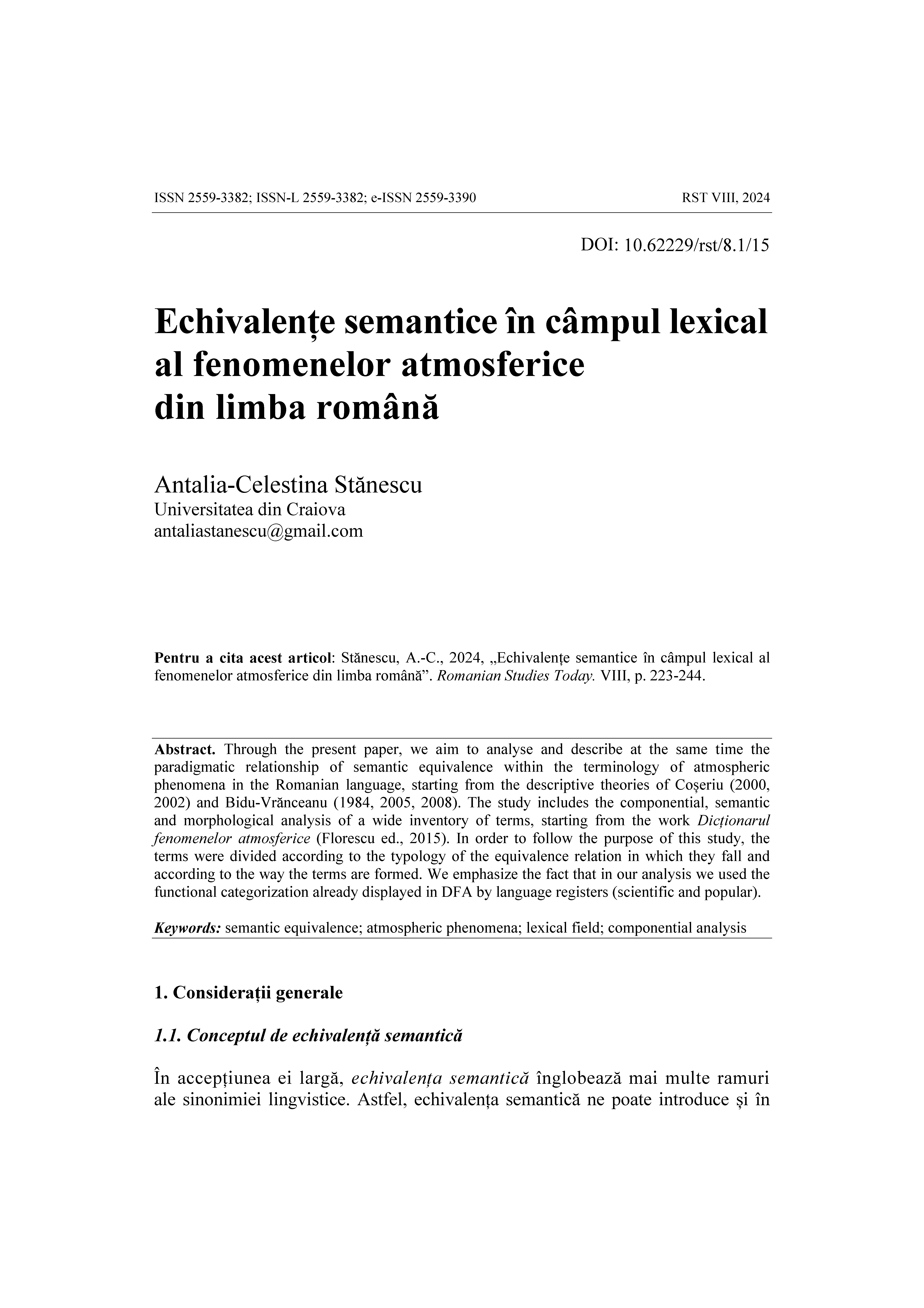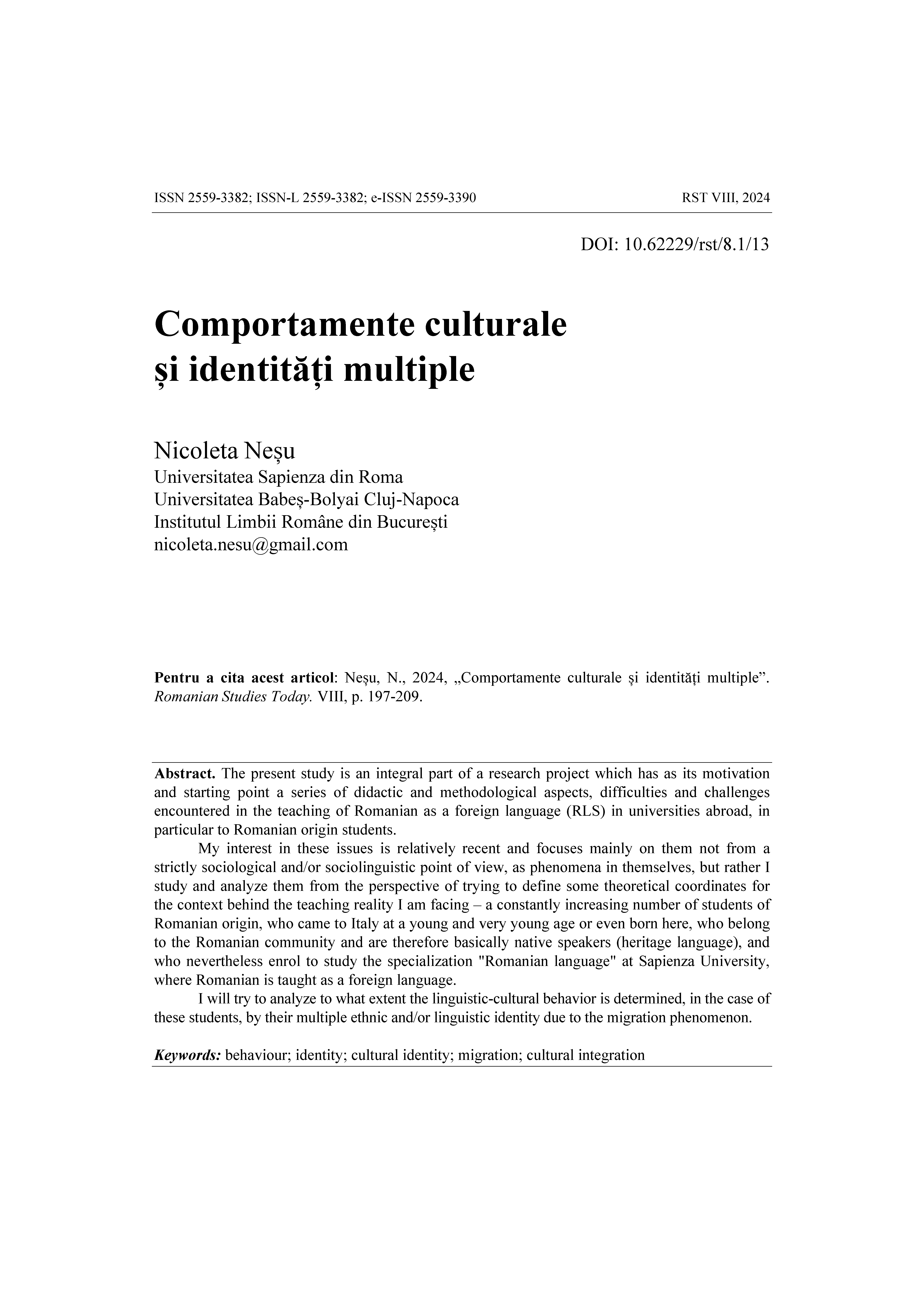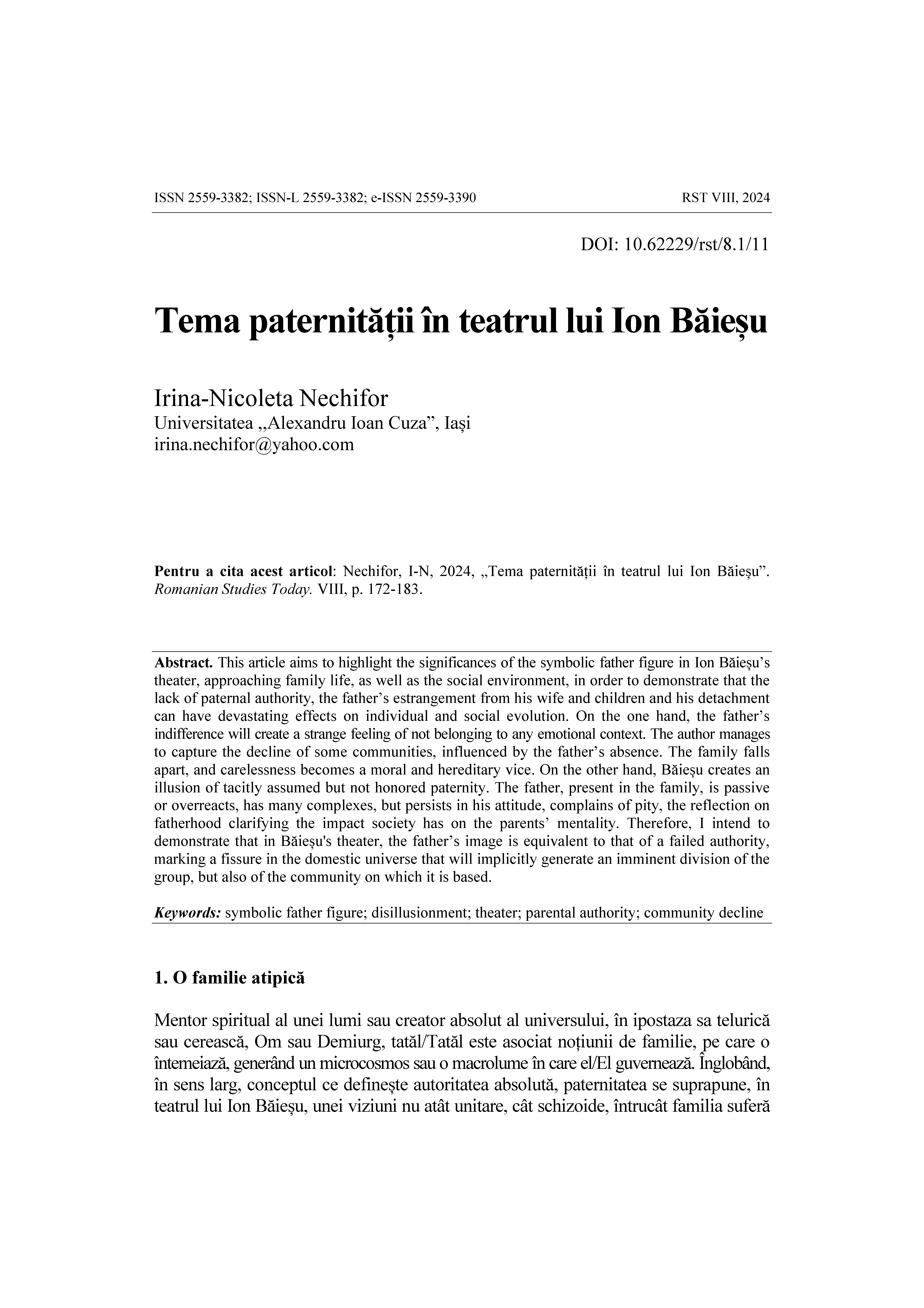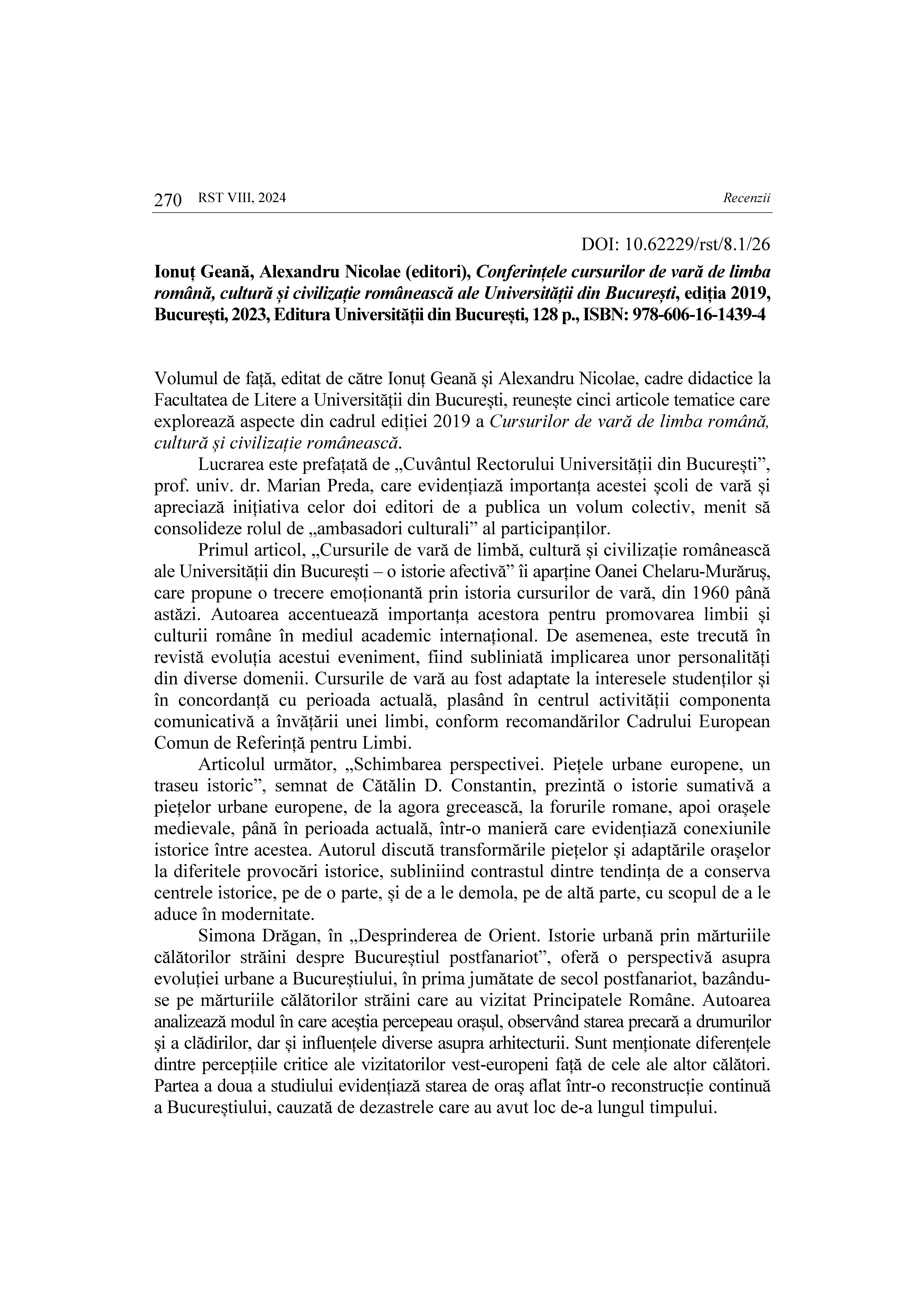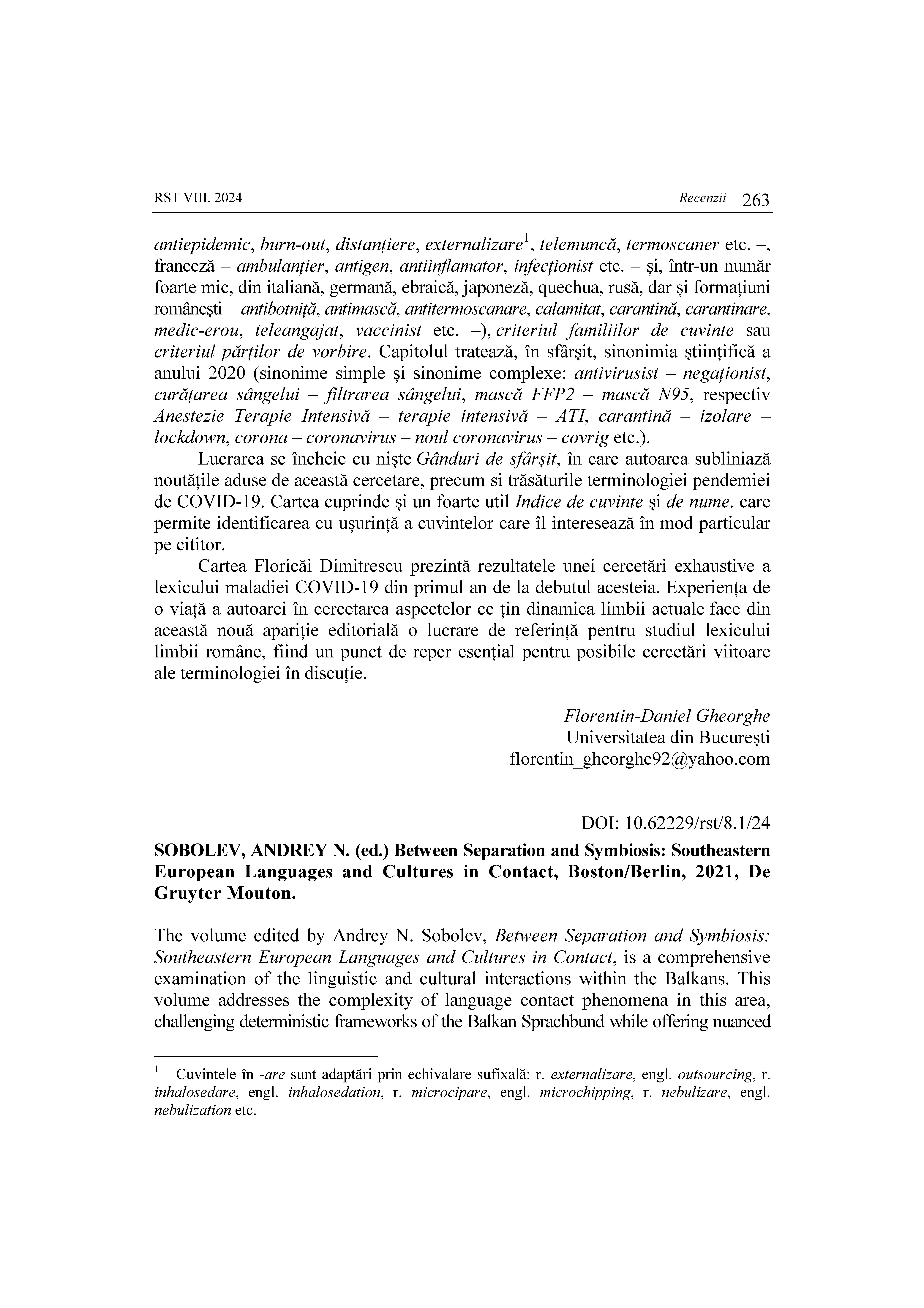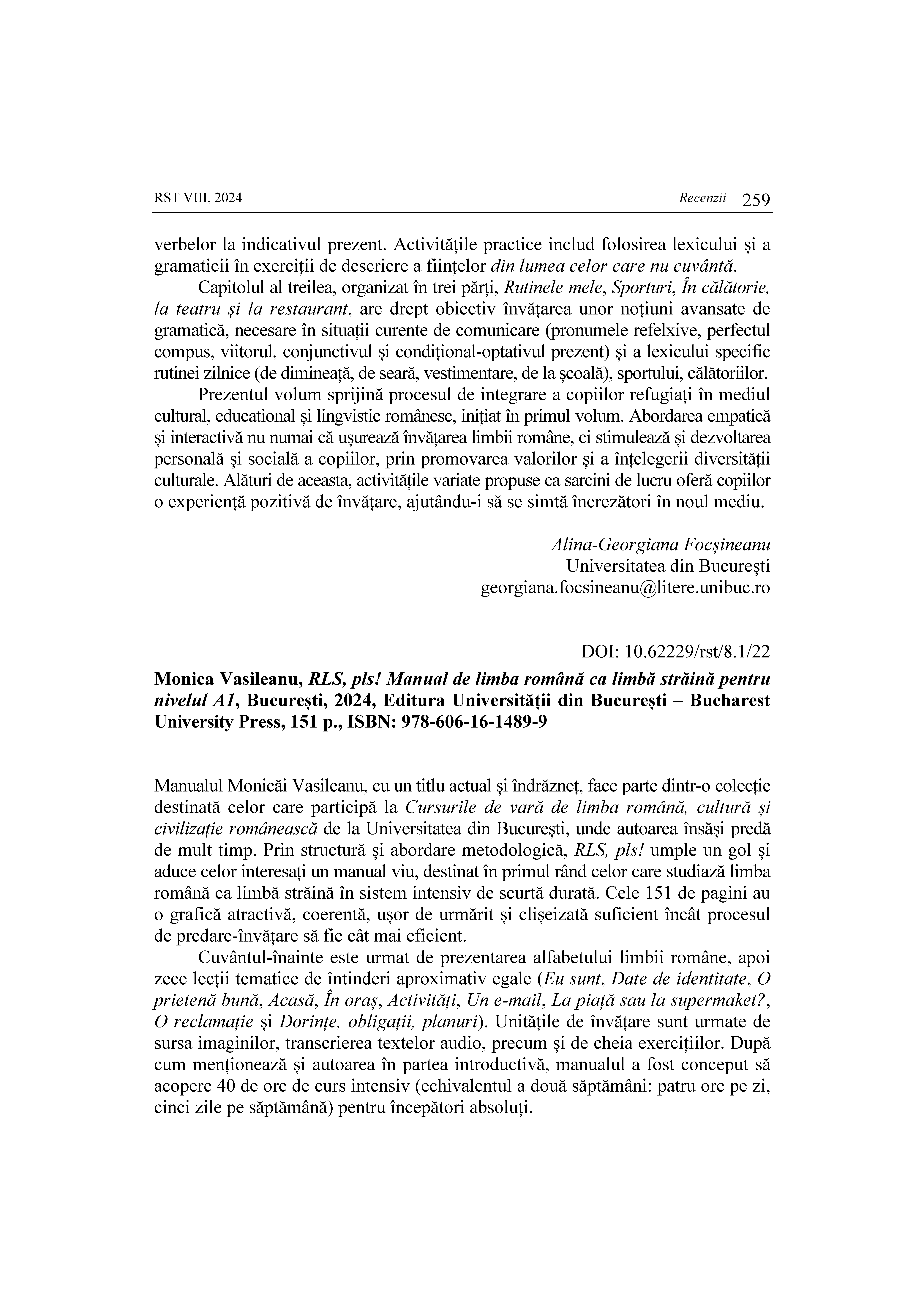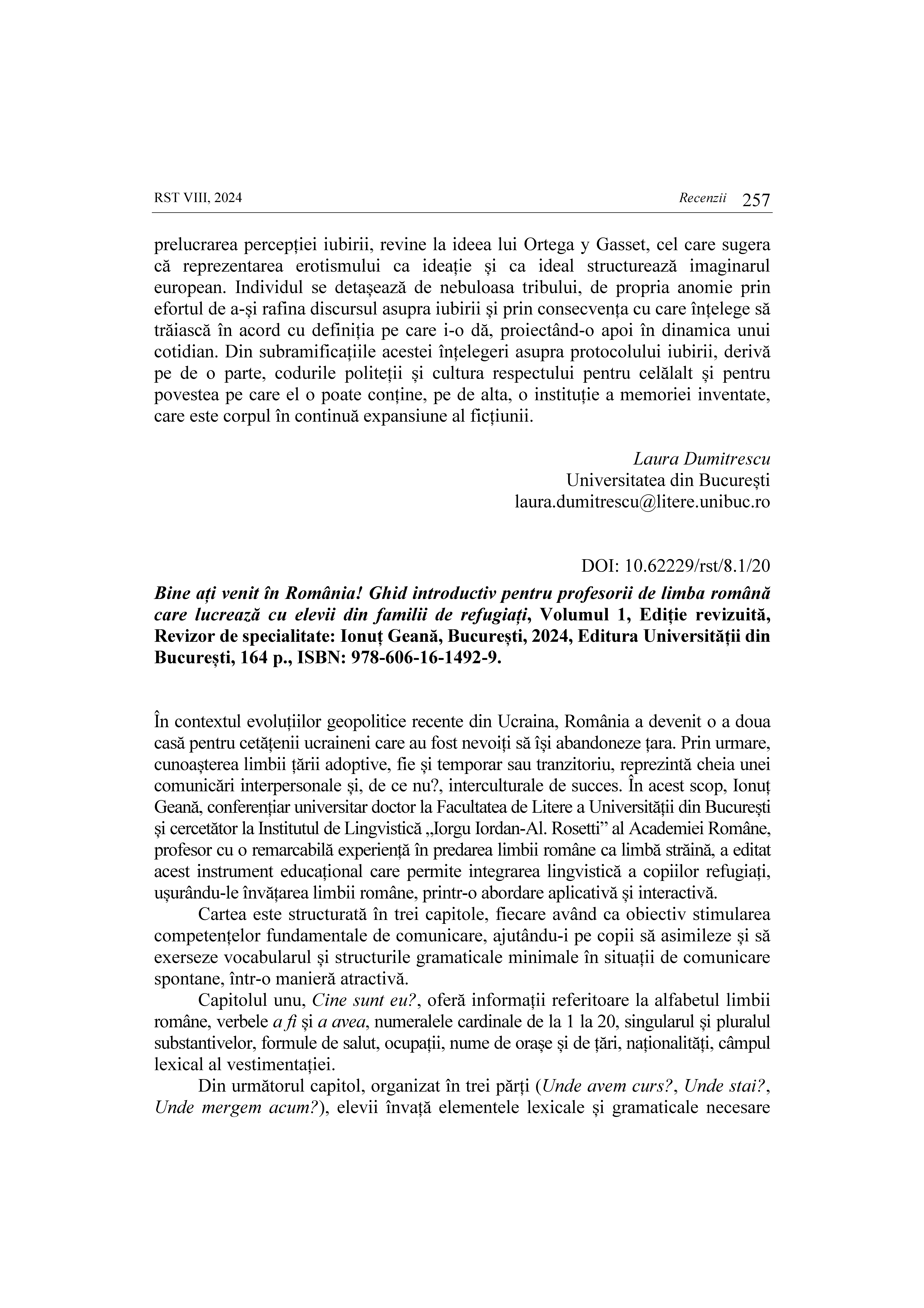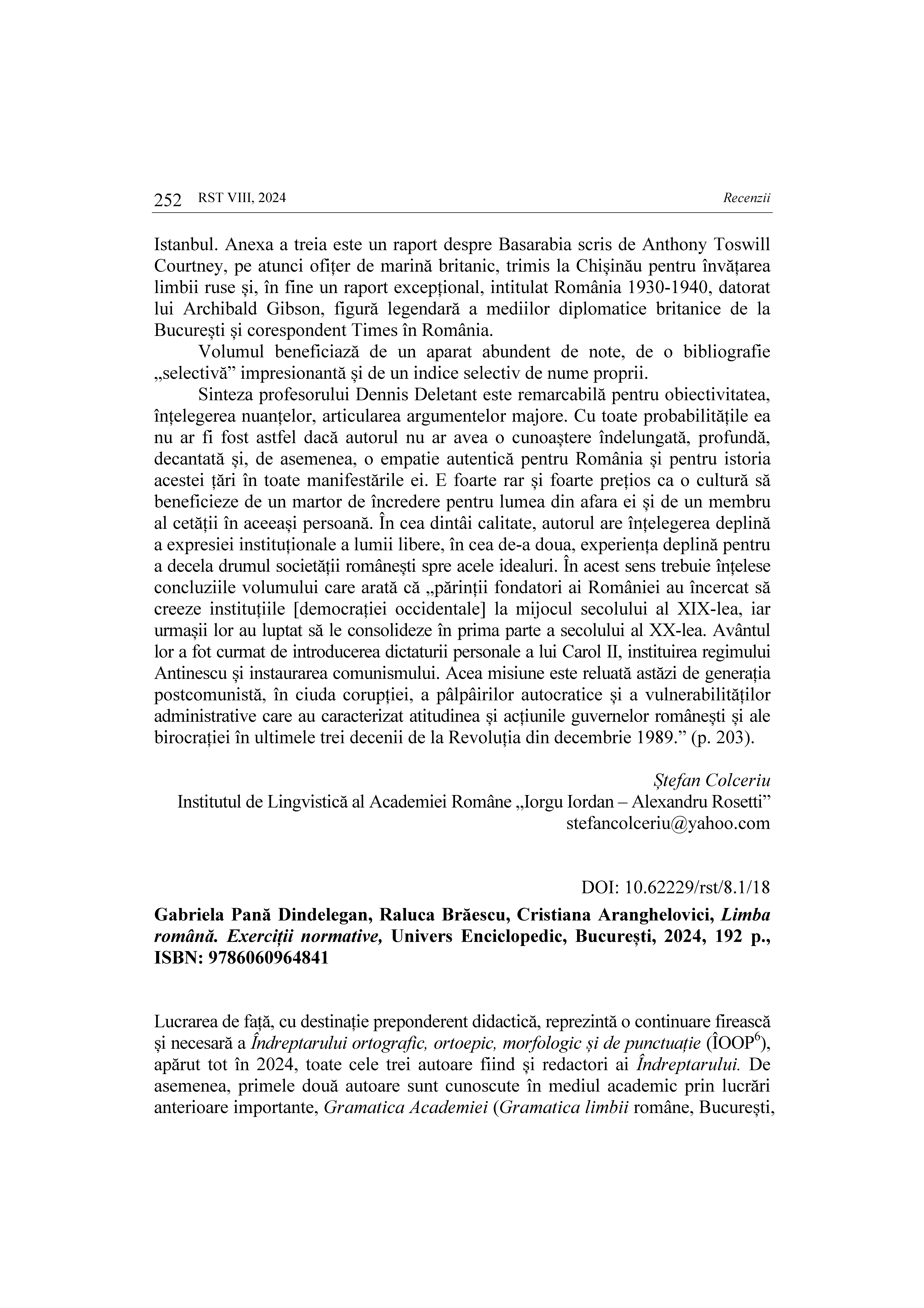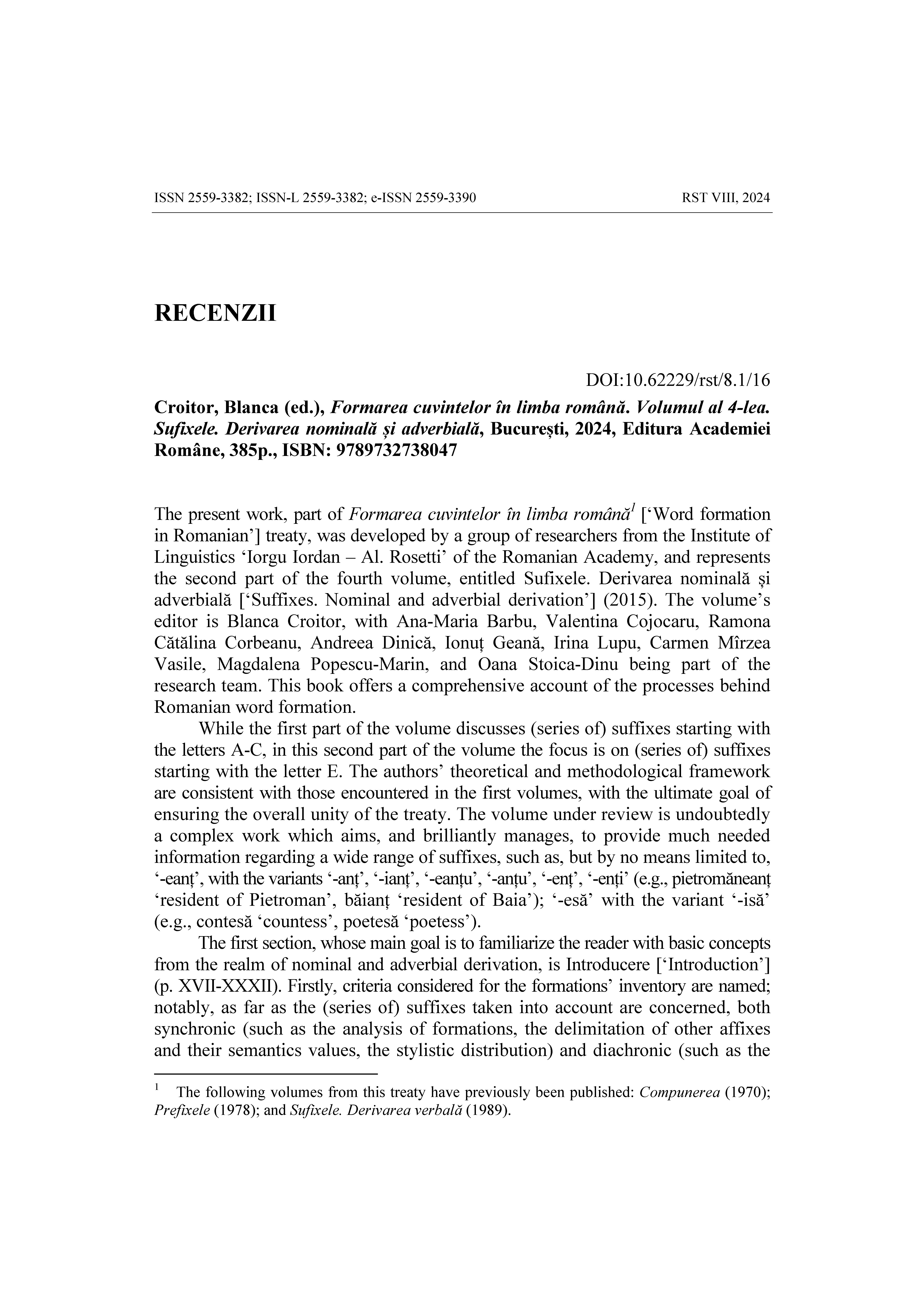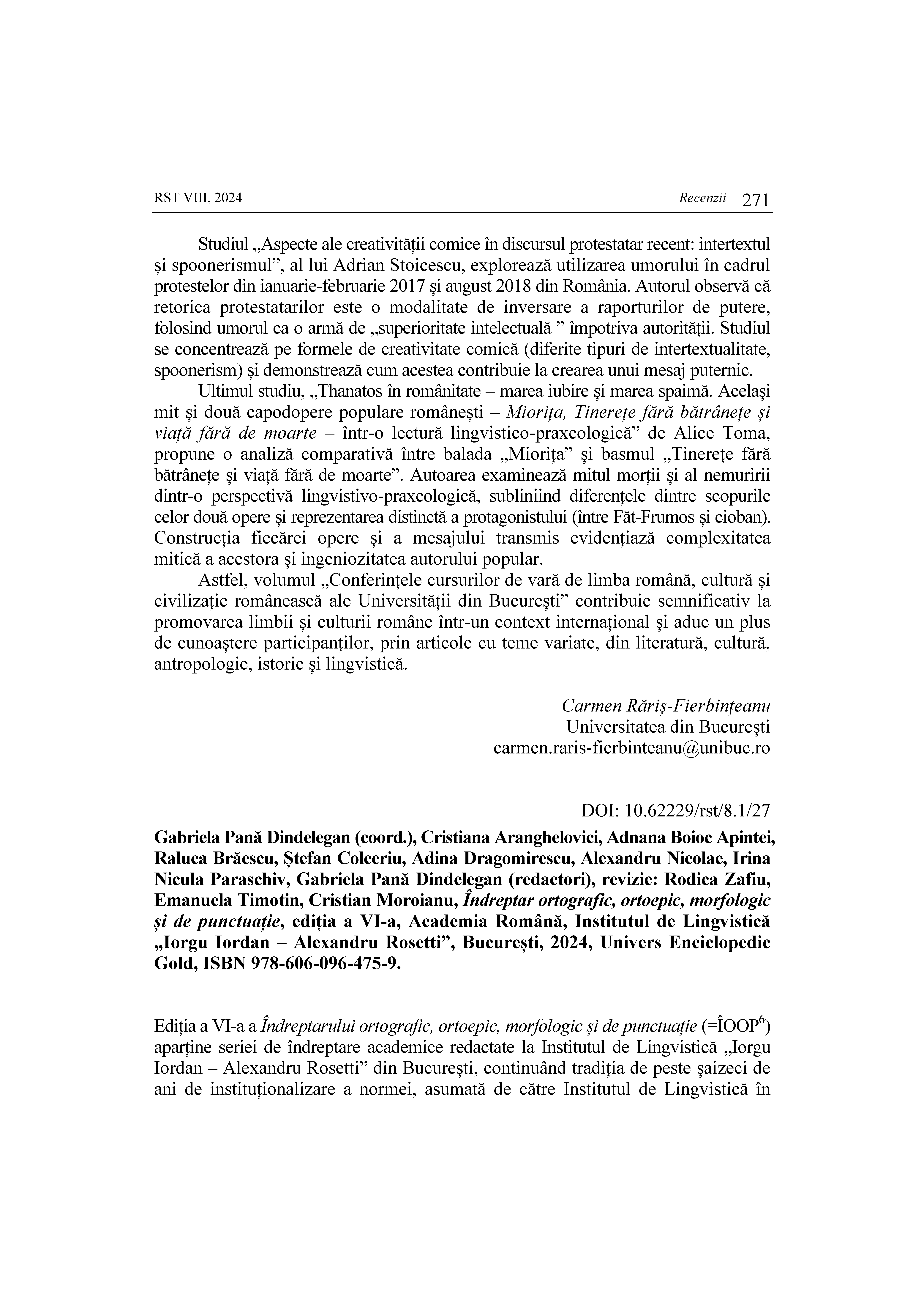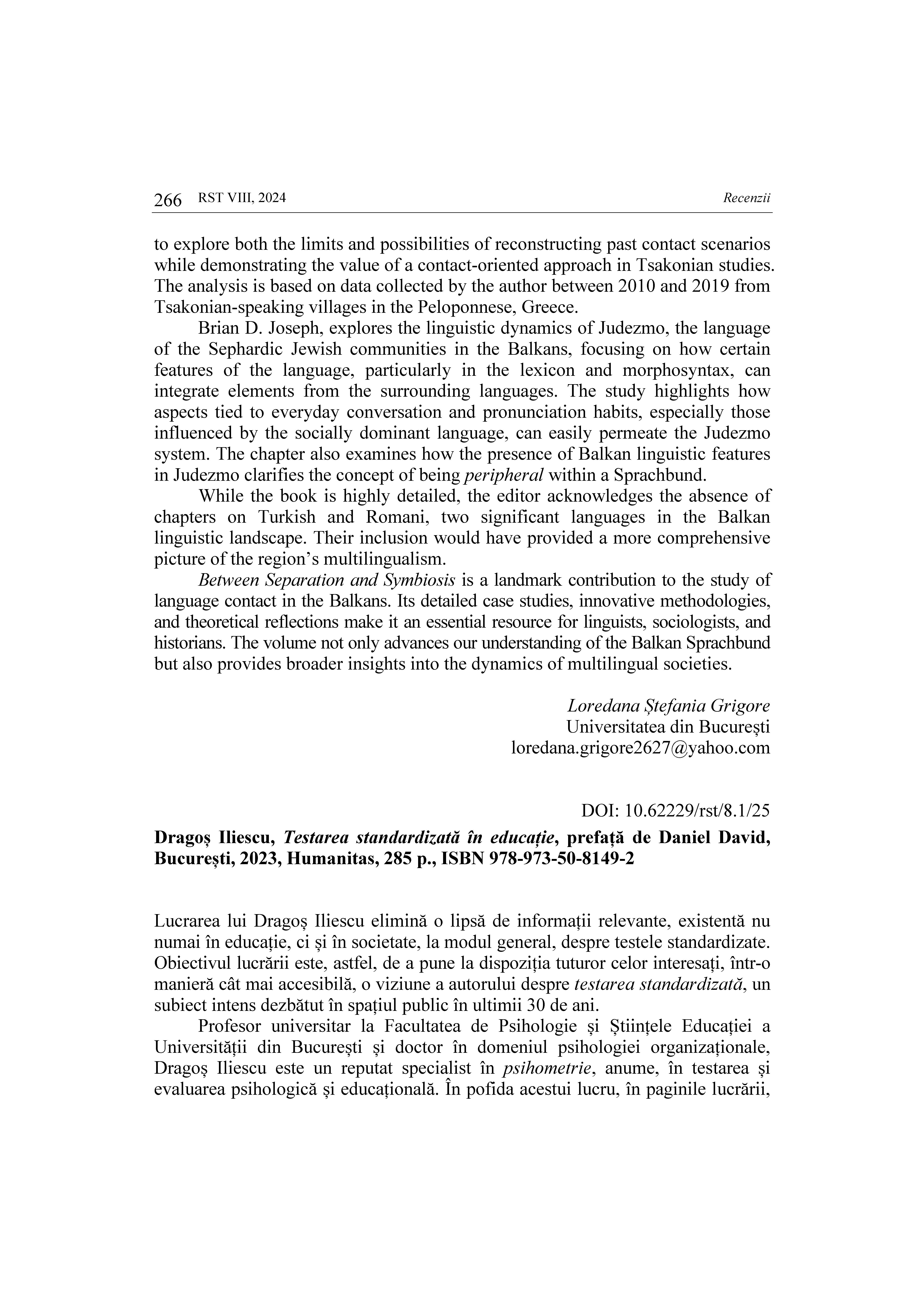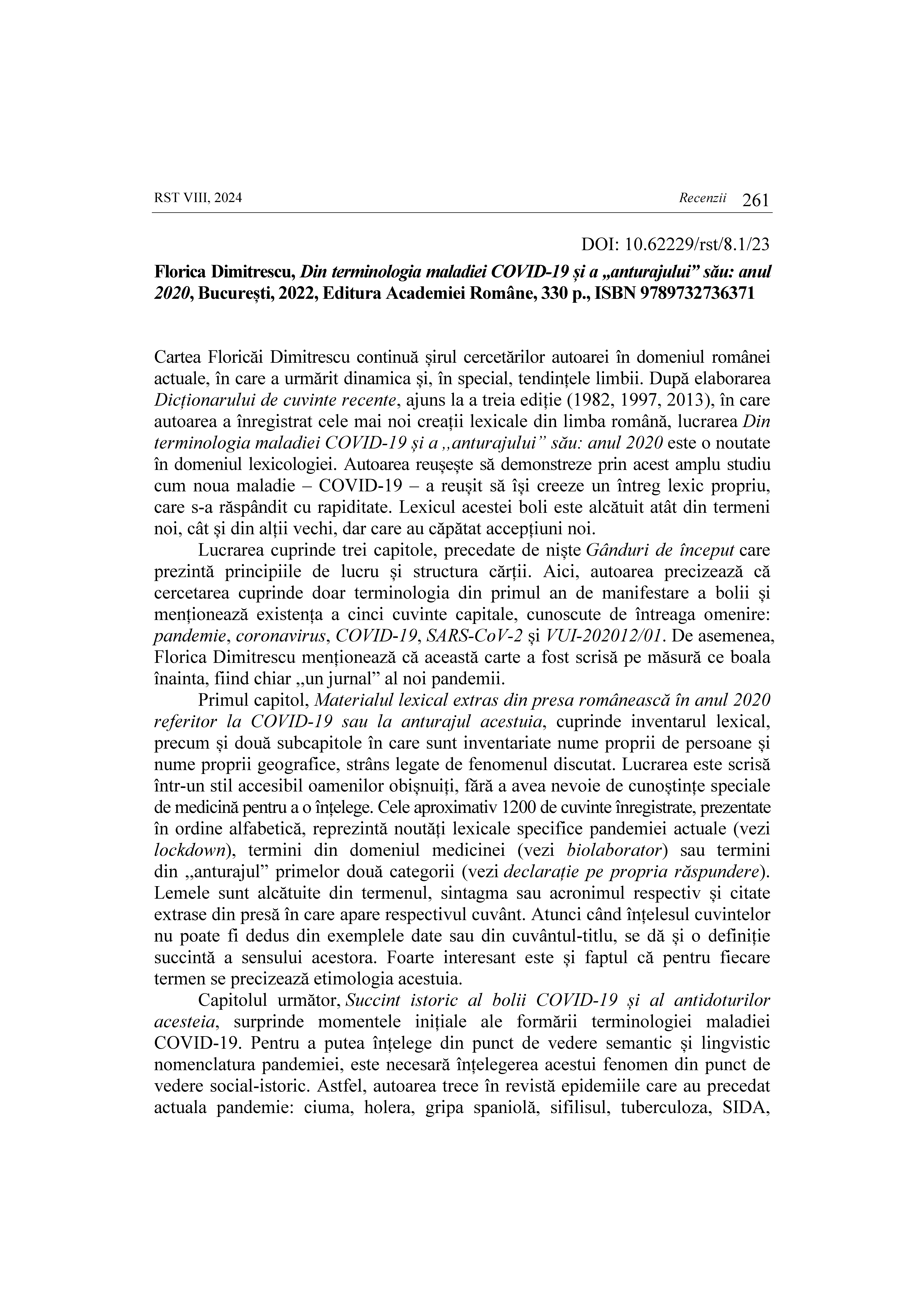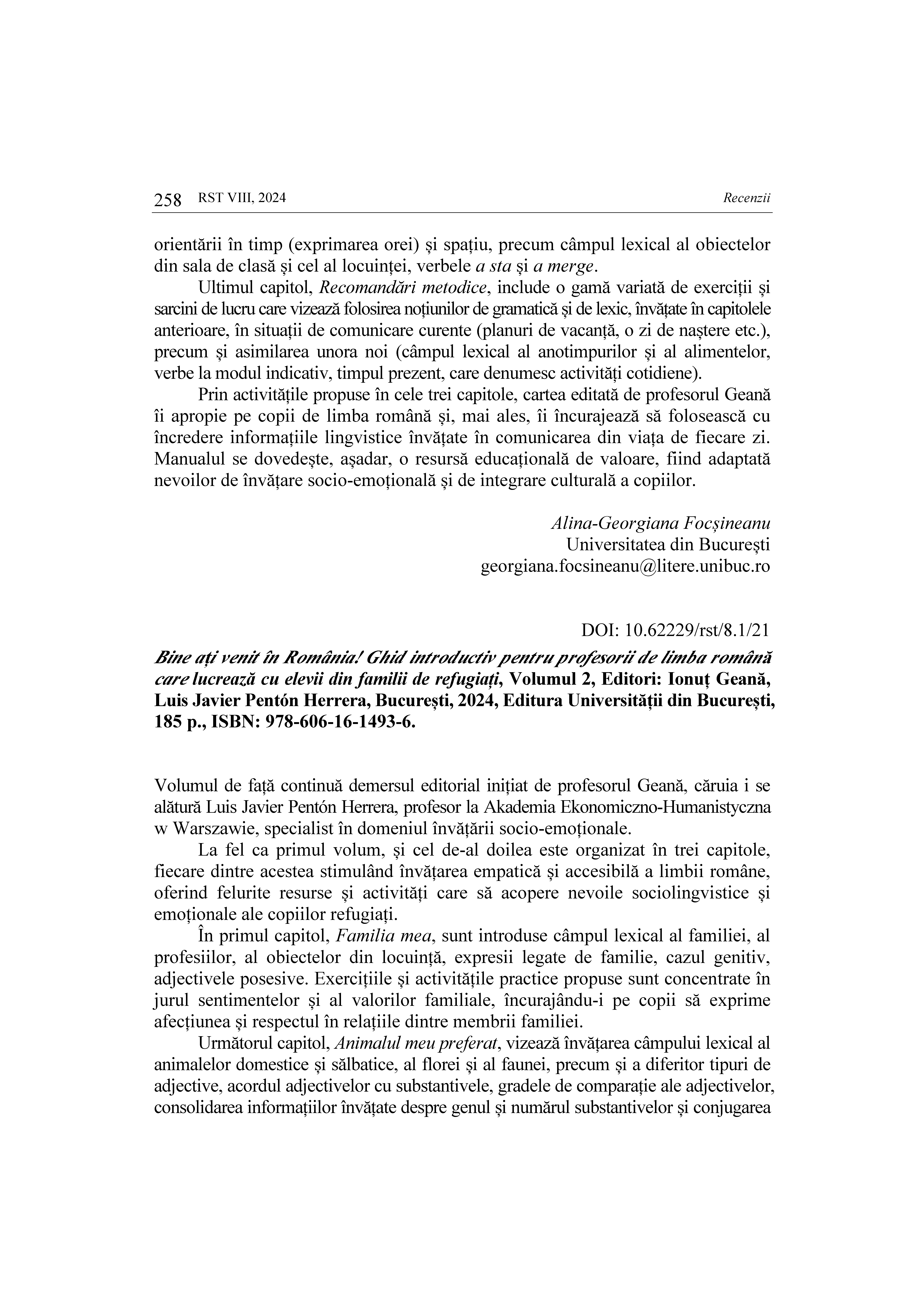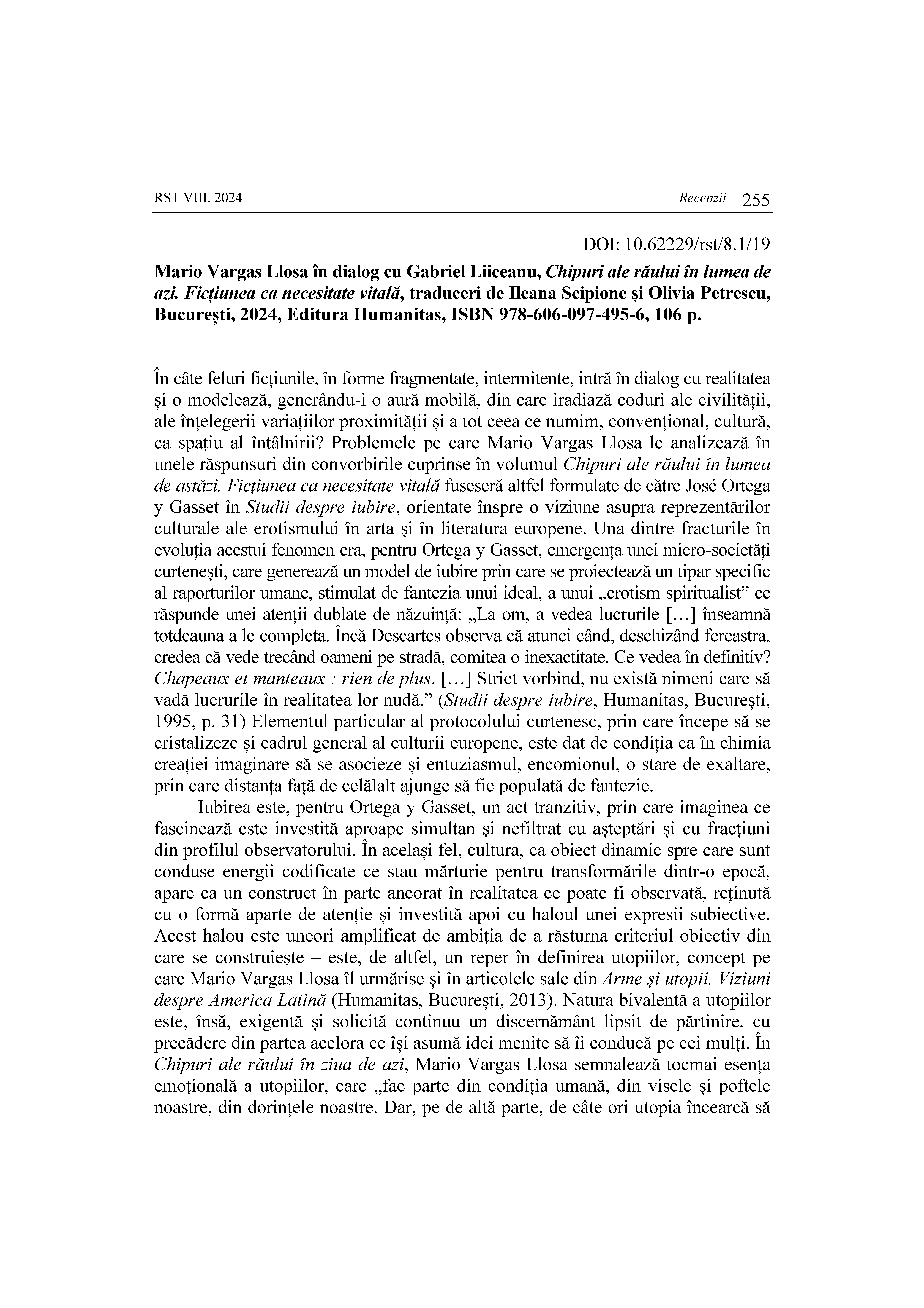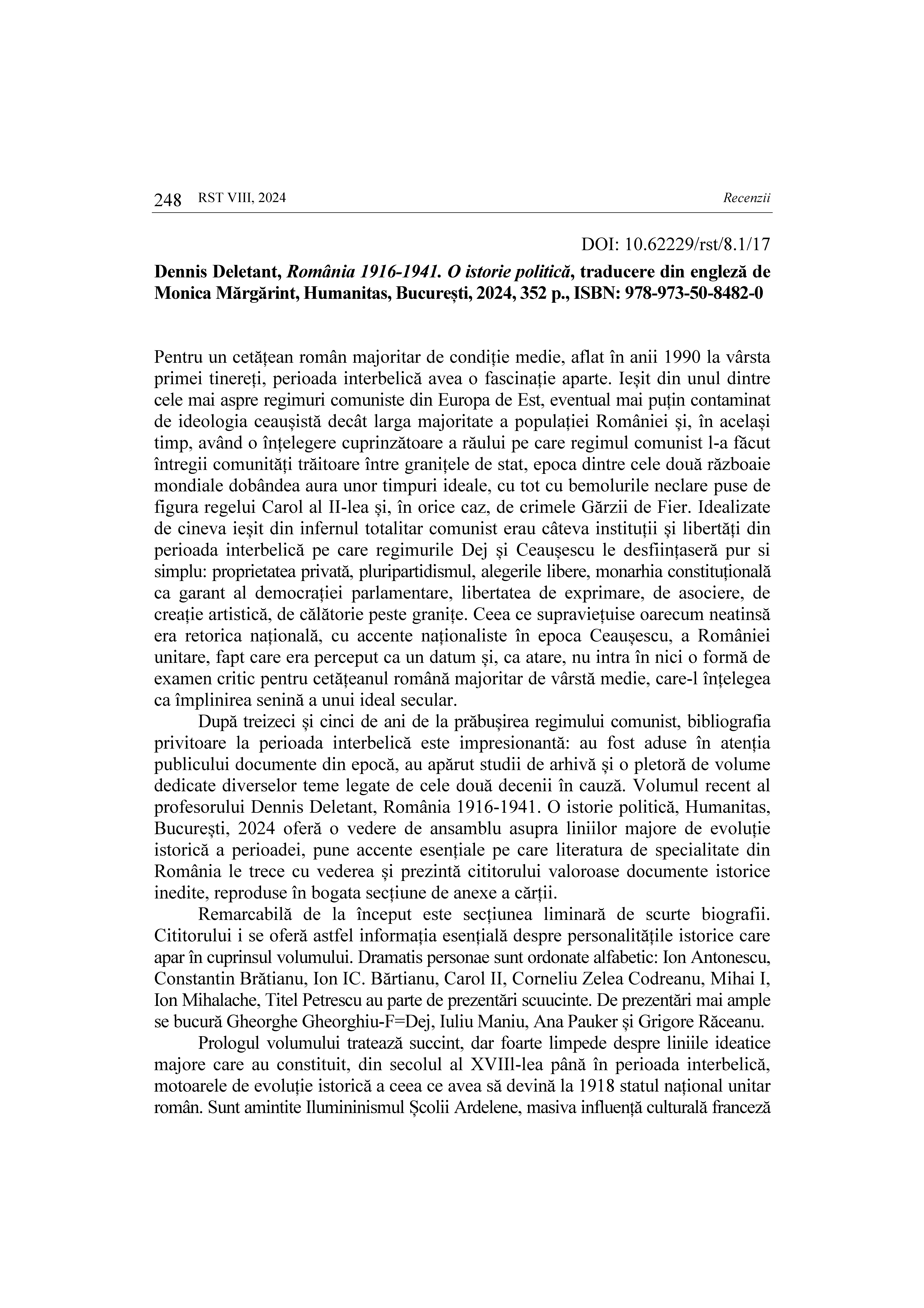About the Journal
As a transdisciplinary journal, Romanian Studies Today has the purpose to maintain a constant scientific interest in the topics related to regional philology and regional studies. The journal publishes one issue per year both print, and online. Its main domains include: the positioning of Romanian studies as integrating part of contemporary social and humanities subjects, issues related to Romanian as a foreign/non-native language. Romanian Studies Today is a journal for specialists, researchers and instructors in Romanian studies in all universities and research centres, and also for specialists, researchers and instructors in regional studies, history, anthropology, political studies or researchers in other domains with an interest in Romanian language, literature, culture and civilisation.
Romanian Studies Today is edited by the Centre of Romanian Studies at the Faculty of Letters, University of Bucharest. The journal was established following the incorporation of the Centre of Romanian Studies at the University of Bucharest. One of objectives of the Centre was to edit a pluri- and interdisciplinary journal, observing all scientific regulations in force, meant for national and international academia, with focus on Romanian Studies. The first issue was published in 2017. Albeit rather recent, our journal has enjoyed the publication of some prestigious authors in the field of Romanian Studies from Romania and from abroad.
Current Issue
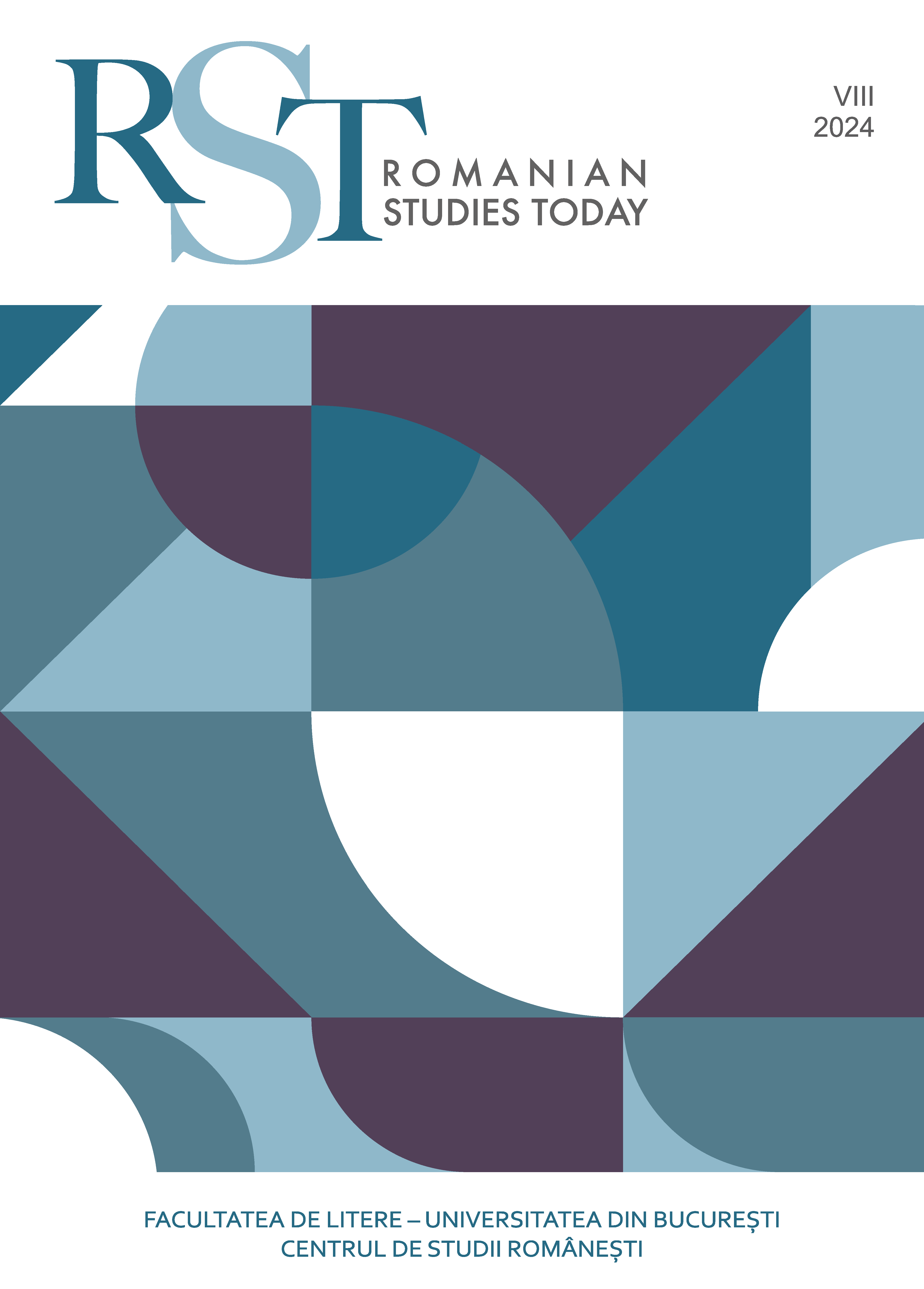
As a transdisciplinary journal, Romanian Studies Today has the purpose to maintain a constant scientific interest in the topics related to regional philology and regional studies. Its main domains include: the positioning of Romanian studies as integrating part of contemporary social and humanities subjects, issues related to Romanian as a foreign/non-native language. Romanian Studies Today is a journal for specialists, researchers and instructors in Romanian studies in all universities and research centres, and also for specialists, researchers and instructors in regional studies, history, anthropology, political studies or researchers in other domains with an interest in Romanian language, literature, culture and civilisation.

